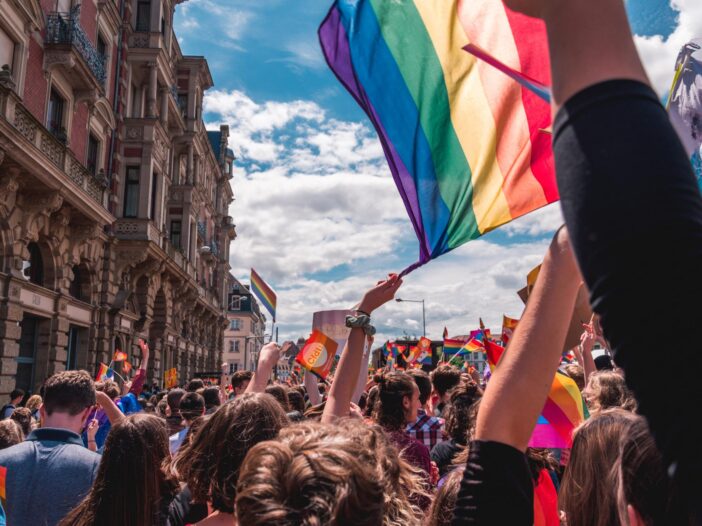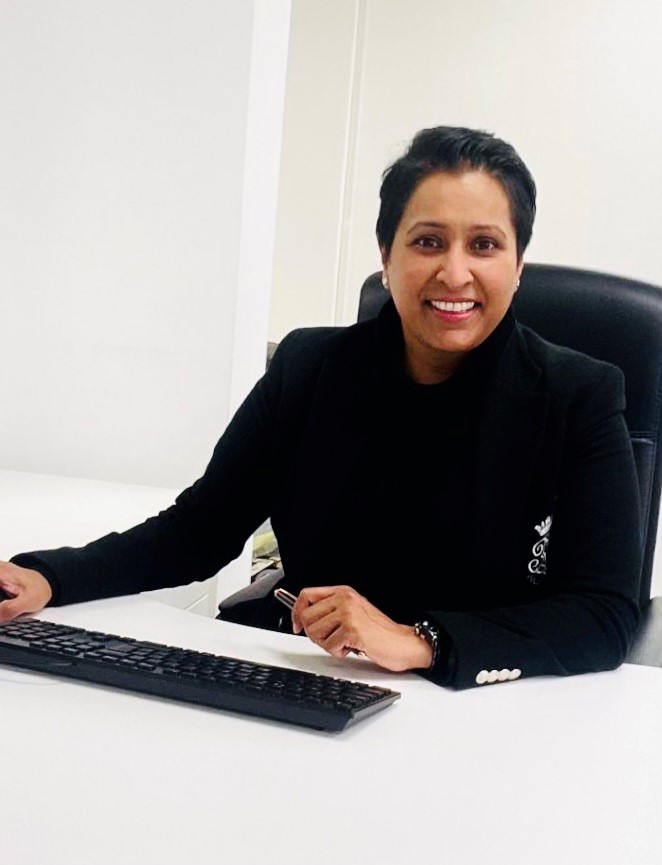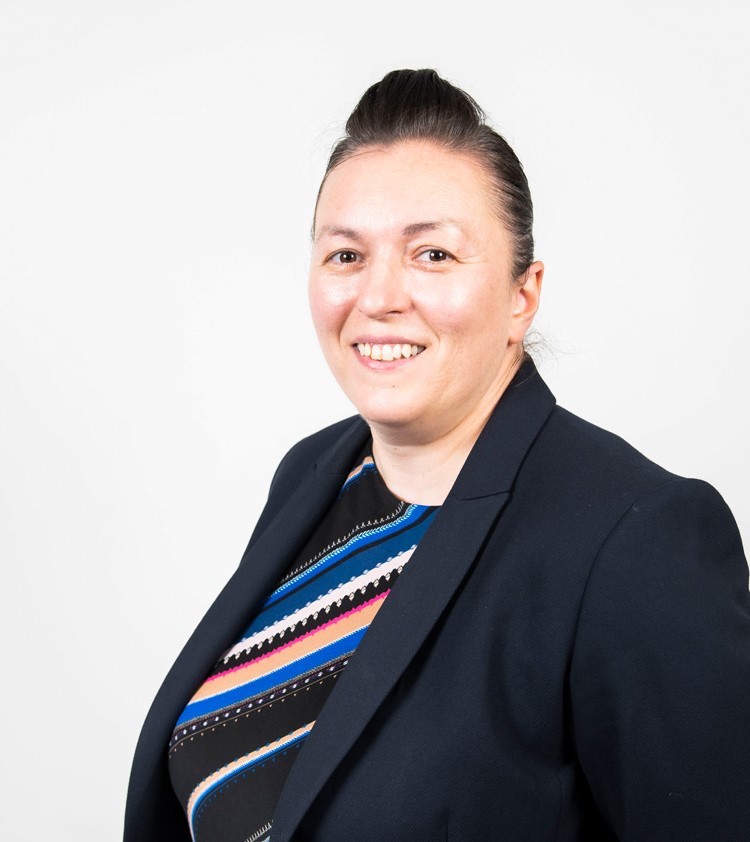
On 2 July, the security industry will come together for the first time to celebrate pride and LGBTQIA+ identities within the sector.

Organised by Satia Rai, Director of Equality, Diversity and Inclusion (ED&I) at the International Professional Security Association, the groups will march at the London Pride Parade in a historic show of support and visibility for individuals within the industry.

Deborah Mills-Burns, Business Sector Director at Bidvest Noonan will join Satia and the others at the pride parade with her wife and son to mark her journey as a working professional in the security sector.
ThisWeekinFM sat down with them to speak about how their own experiences have evolved within the industry and what this pride parade means to them.
Tell us About the Inclusion of LGBTQIA+ Identities in the Security Industry Over the Years.
Satia: I’m a proud member of the LGBTQIA+ community. The security industry is not as inclusive as I’d like it to be; however, we are making good progress. In the last two years since I became a part of the ED&I side of things, I’ve observed that there has been a lot of lip service when it comes to inclusion, but it shuns the most important parts of the issue, output and action. That’s what I’m aiming to target, and we have gotten so much better at it. The fact that we’ve never attended a pride march before was an important place to start. I remember seeing the police and armed forces at previous pride marches. I was wondering where the security sector was because we are the ones stewarding and managing the security for the whole event. I began reaching out to the associations and got various leading service providers and security associations to be on board to march together this year.
Deborah: I’ve always encouraged colleagues to take part in pride. I was never at the forefront of it, but I have always advocated for involvement. I was a member of the armed forces at a time when it was more challenging for gay people. I spent the first three years of my service as a hidden person because of this. I never came out to my parents; it was my current wife who told my parents that I was gay. I never wanted to do it then, but I’m a totally different person now. Now, I’m probably one of the most open people you can come across because I understand that people are sometimes scared to ask questions because they don’t know if you’re gay. I always make it a point to call my wife, ‘my wife’, so I can be clear about who I am.
How Would you Say Acceptance and Allyship in the Workplace have Changed over the Years?
Deborah: In Bidvest Noonan now, I couldn’t feel any more supported. That’s not me being cheesy or promoting the brand. That’s just how I feel. Whenever I have a conversation with anybody, I openly talk about and reference my wife. There’s no awkwardness; it’s a genuinely welcoming environment. I do believe in our credo of putting people first; I think that demonstrates this kind of inclusion. But on the flip side of it, only four years ago, during our pregnancy, when my wife and I were working in different companies, everything felt a little more challenging for us even though we were going through the same thing as a heterosexual couple. During every step of the way, my wife needed to apply for leave at work because her employer at the time didn’t have policies in place to deal with our type of pregnancy. It might sound trivial, but it was hurtful. We went through a lot as a family.
Satia: The last two years have seen a real collaborative effort. ED&I being embedded across our sector will enable it to be successful and ensure its growth. Education and visibility play a very important role. Now, people are having conversations about LGBTQIA+ history, pride, and allies. These are wonderful things to keep building on from a leadership perspective. When I started my ED&I journey as a Director, I introduced an ED&I specialist role into the team structure. It’s only a matter of time before the sector starts to create and have ED&I-specific roles in organisations who will focus solely on inclusion. We never had the special interest groups or role models that we have now. As we speak, there are about 72 countries where it is criminal to be who we are and 13 countries where it’s punishable by death. We have a voice and duty of care to raise awareness, stand in solidarity and make sure we are free to live happily in society. I’m hoping that this collaborative initiative will do more than just bringing us together to march. I hope it shows that we can come together and do more for the LGBTQIA+ community.
What Does Pride Mean to You?
Satia: It means openness, it means joy, it means celebration. It means my niece can aspire and grow up in a world where she can be anything she wants to be, no matter what her background is. My parents were immigrants that came into this country, English wasn’t their first language. They struggled, my mum had four jobs and they did all this for me so our family could survive. I have to be the best version of myself for the sacrifices my parents made. Knowing this, I cannot sacrifice any version of my identity. So, when I try to make society a better place, it’s for my family, my colleagues, and all the diverse communities within it.
Deborah: I think a lot changes when you have children. For me, pride gives my son the opportunity to see the world from a different point of view and to normalise it in his own head, so he knows it’s normal to have two mums. For me, it is all about my son and making sure that he has the opportunity to grow up in a world that is completely different to the one I grew up in. Whichever way his sexuality goes, he can express it and be proud of where he comes from. Pride gives you a larger family and network of support.
How Do You Plan to Celebrate Pride This Year?
Deborah: We’re taking our son along with us to the pride march in London. We would not have come all the way to London if Bidvest Noonan was not going to be a part of this parade. I feel so supported in my role – the fact that I can take him to nursery and pick him up – the work-life balance is wonderful. When they asked me if I wanted to be a part of this, I thought it would be wonderful to showcase that family element. The fact the company supports that is very important to me.
Satia: I’ve got the industry together to attend the actual parade. This year was the first time that we applied. They had a record number of applications this year. There are over 500 businesses that are parading. It’s so significant that we as a sector will be sending out a real message that things are changing. Come and be a part of this amazing sector because you are free to be who you are!
Article written by Ella Tansley | Published 30 June 2022 by ThisWeekinFM

